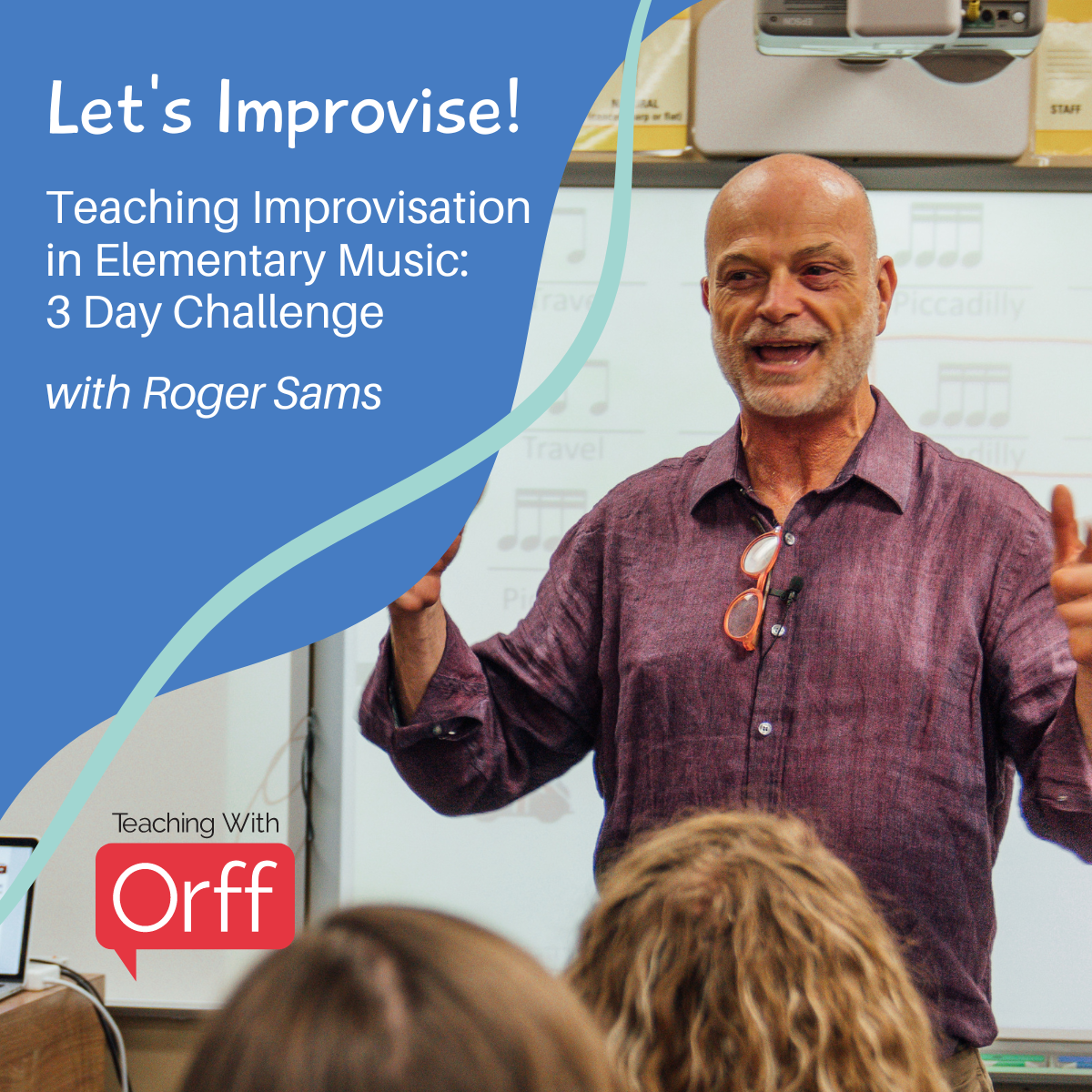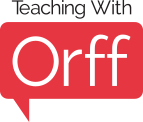Life After Certification – Three Things
Although I could write a ton about everything I’ve learned so far this year about being an Orff teacher, I think most of it can be summed up with these three things:
1) Being an Orff teacher takes time.
Teaching in the Orff-Schulwerk style requires educator mastery of the material, which can be time consuming. You need to know every note, every rhythm, every ostinato, every dance move and that takes time and effort. You must be prepared for Orff lessons and that doesn’t always happen quickly, especially if you are adding visuals or using the SmartBoard.
Not only does it take a lot of teacher preparation time, but now the time spent working on one song or one concept is a lot longer than in the past. This is not necessarily a negative thing – we are now working for depth of knowledge rather than breadth! It is tough for me to spend more time on fewer activities, but mastery is an important life skill that I’m now instilling in my students!
Lastly, preparing for an Orff concert takes so much work and stress, but it is so worth it! I could see the sense of pride in my third graders this December knowing they had performed all three of their songs without any outside accompaniment and the parents really appreciated it, too. Your first Orff concert will be exhausting and also incredibly rewarding.
2) You will become a better teacher.
Like mentioned earlier, Orff teaching requires mastery of the material, but there also needs to be an internalization of the whole Orff teaching process. I absolutely love the “do something, change one thing, change one more thing, etc.” type of teaching and it keeps the students much more engaged because the process moves quickly with less teacher talk.
Also, although I still plan my lessons out, if there is extra time at the end of class, I’m now much more comfortable improvising extensions for whatever we are working on. Perhaps this is due to this being Year 3 for me and I’m “hitting my stride”, but I think that internalizing the Orff process has helped tremendously.
One of the amazing surprises I’ve found after taking Level I is that I can now pick up books or check out ideas on Pinterest and know how to teach the lessons. I know the process and can see how the pieces should be taught step-by-step, even without reading the details of the lesson. I even know how to successfully modify some of the more complicated lessons to fit with the abilities of my students. This has made me much more confident when teaching new lessons – and there have been many this year!
3) It is totally okay to take baby steps.
My feeling with being an Orff teacher is that you should only do what you can do – a little Orff is better than no Orff at all! For me, some things stayed the same from last year, especially because I wanted to do activities I loved last year that weren’t particularly Orff-y. Some days I feel like a total convert to the Orff-Schulwerk style but other times I know that I’m not, and that’s okay! There is nothing wrong with slowly working in Orff to your curriculum – baby steps are fine!
For my school, I’ve had to go back to basics with my students since they had a lot of transitions with music teachers before me. For example, I’ve had to accept that my students won’t be able to read music in la pentatonic right now because we need to learn the basic do, re, mi, so, and la first. Lay the groundwork with your students now so later they can get to all the challenging plans you have in your idea bank!
Miss C’s Baby Steps to Improvisation:
I’m not going to lie to you, improvisation is scary. You are giving up the reins and hoping your students can make music on their own. Not only does it scare the teacher, but the students are nervous about messing up, too. To get kids used to performing alone, I’ve taken a few baby steps that I want to share with you:
At the beginning of the year, name games were a great way to get students used to the simple idea of performing alone without having to create their own musical ideas. Later, I had students (especially the younger ones) create movement solos that the class “echoed”. This soon turned into an activity my kindergarteners loved – every day I’d have three or four kids lead the class in keeping the beat to a song in a variety of ways. This was a great way to get them focused at the beginning of class, lay the groundwork for improvisation, assess the students, and incorporate a wide variety of listening examples! My older students have done a little bit of rhythmic improvisation with clapping and soon I’m hoping to transfer this to percussion instruments.
See?! Improvisation doesn’t have to be scary; just take baby steps!
See all posts by Erin Clevenger
1 Comments
Leave a Comment
Sign up for latest Orff Tips, Lesson Plans and Advocacy Tools

Empower your students to create their own music in this free 3-day challenge with Roger Sams. (Lessons delivered via email)

Learn about the legendary factory that started it all and why so many teachers like you love our instruments.

Erin:
Do you have any resource materials whereby Orff Lessons and DOK are referenced? I would like to put DOK references on my lessons next year and need some samples.